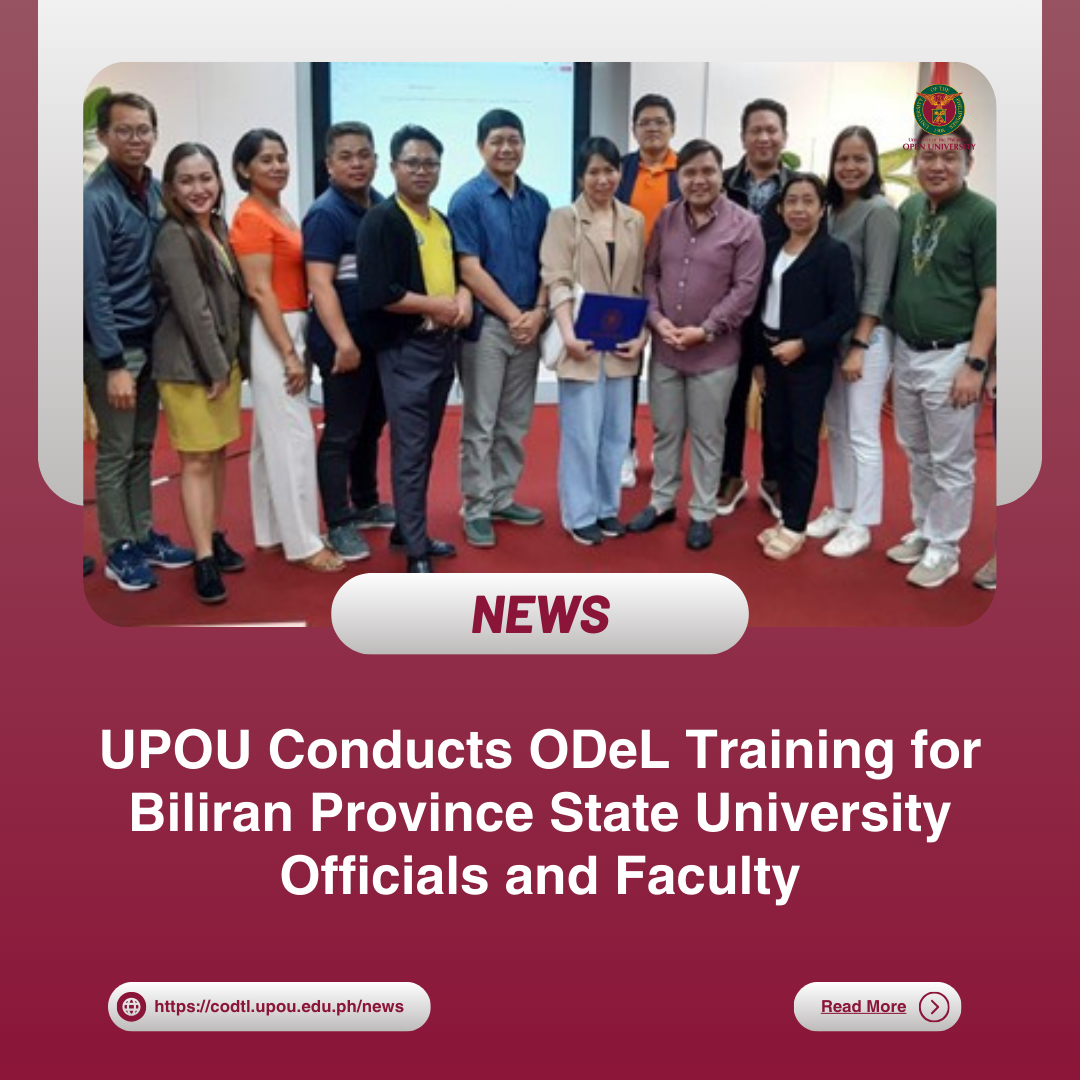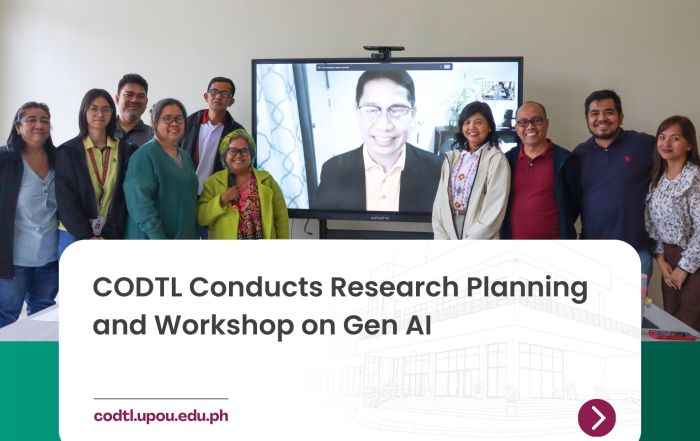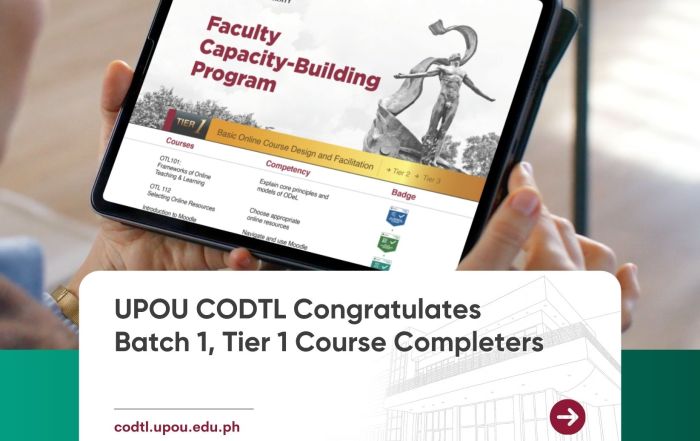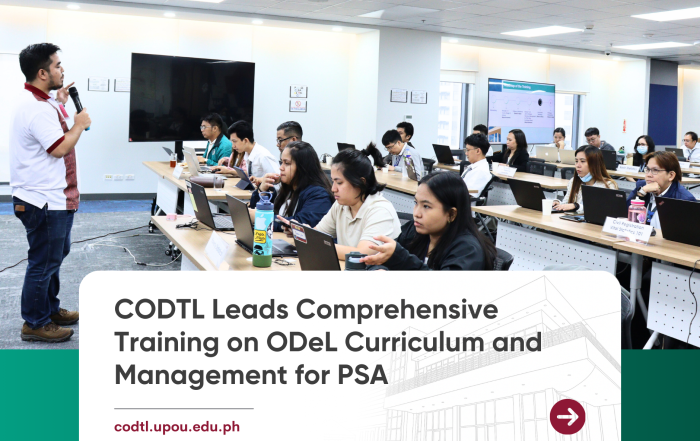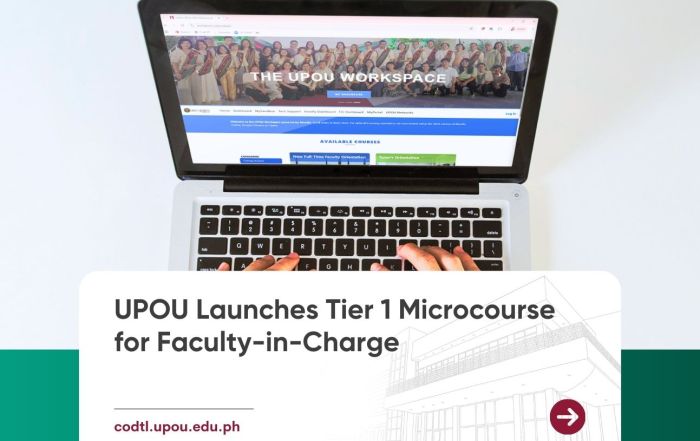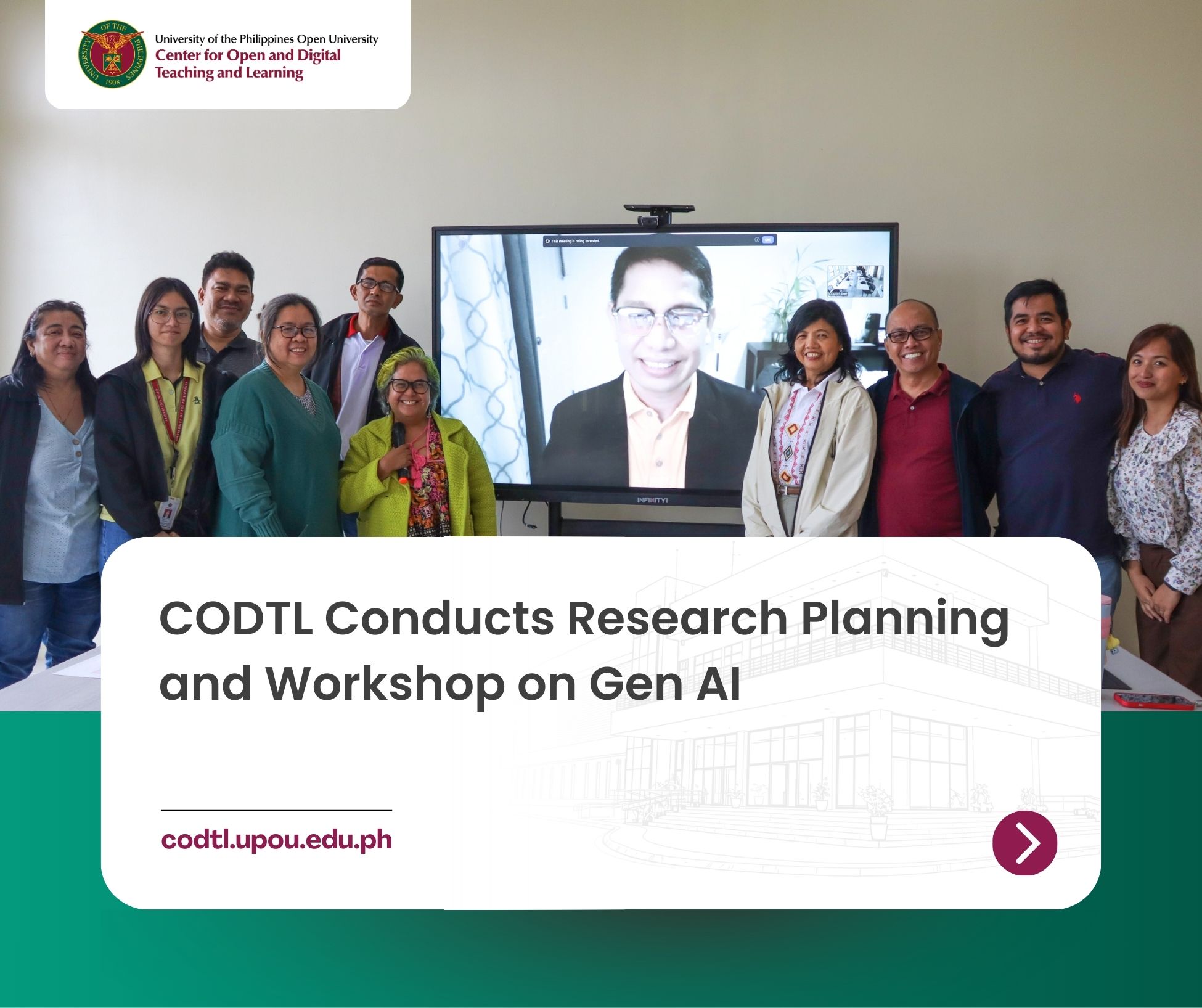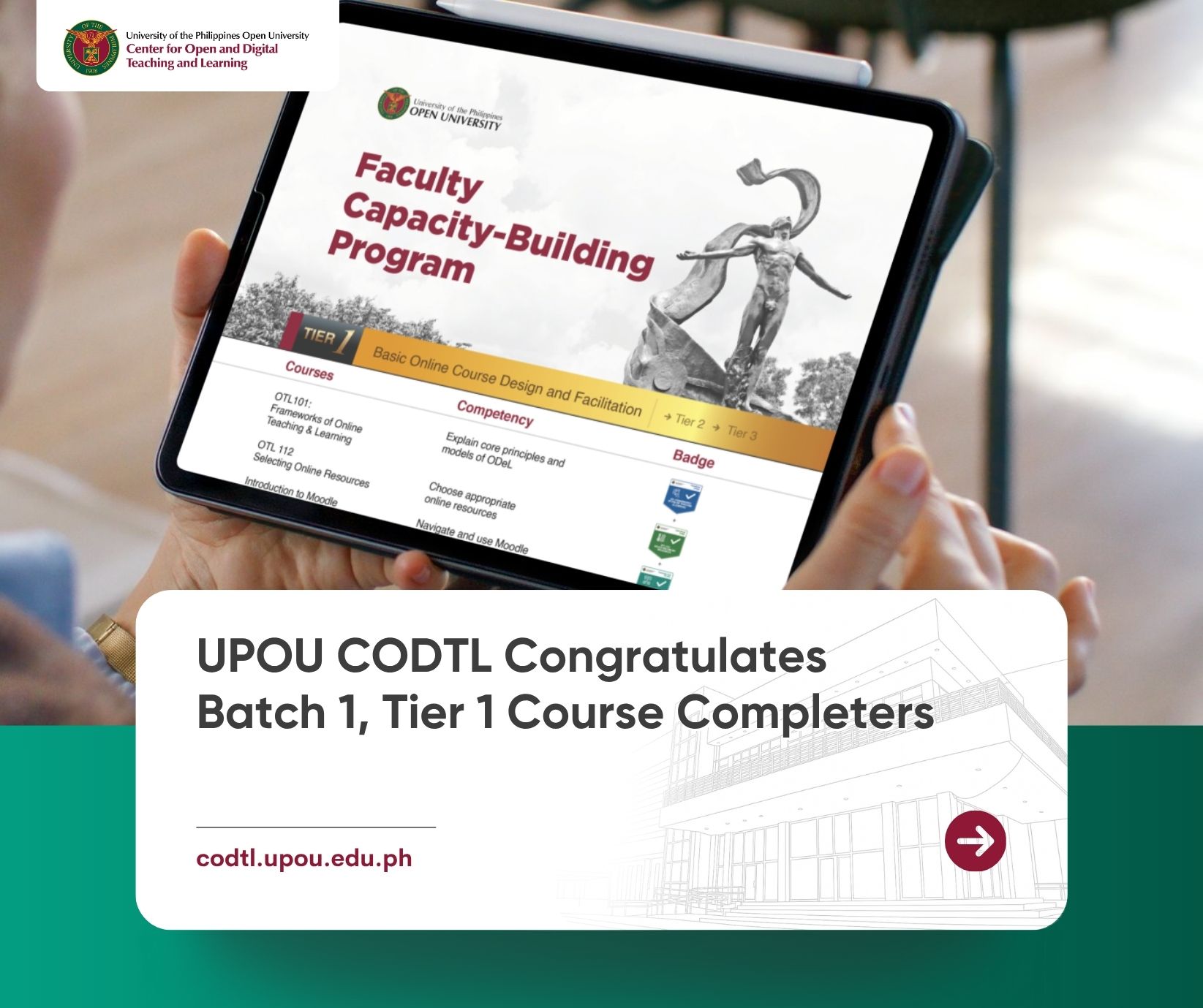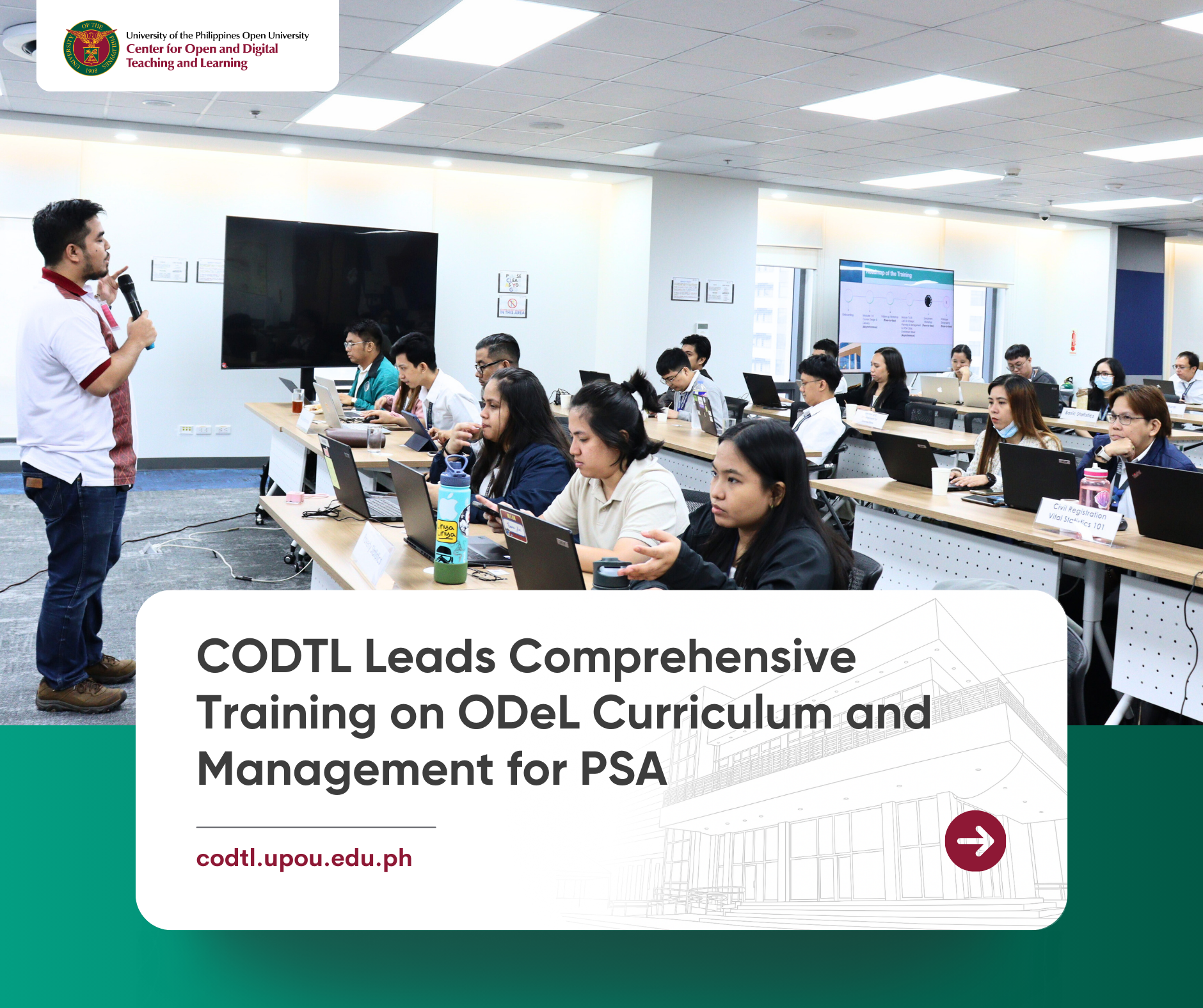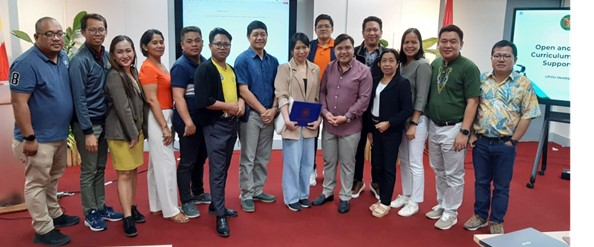
The UP Open University, led by the Center of Open and Distance Teaching and Learning (CODTL), conducted a 2-day training titled “Open and Distance eLearning: From Curriculum Development to Technical Support and Quality Assurance” for 14 Biliran Province State University (BIPSU) officials and faculty members at the UPOU Headquarters on 30-31 May 2024. This training aimed to orient and prepare the participants for their initiatives to offer courses through Online Distance Education.
The training gave participants an overview of open and distance e-learning (ODeL) instruction and its implications for learning design. UPOU Chancellor Melinda Bandalaria, one of the resource persons, gave a general orientation and discussed leadership and management in ODeL. She explained the difference between Open Learning, Distance Education, eLearning, and Open and Distance eLearning. She outlined what the university needs to prepare and develop for its CHED accreditation application for distance education.
Meanwhile, CODTL Director Ricardo Bagarinao discussed the pedagogical considerations and theoretical underpinnings guiding the practice of ODeL. He mentioned that flexibility, ubiquity, interactivity, and connectivity are among ODeL’s key features. For internal quality assurance in ODeL, Assistant Professor Mari Anjeli L. Crisanto led the discussion. She presented the various frameworks UP Open University has considered for quality assurance. Prof. Crisanto explained that each framework differs in its level of assessment: some assess at the course level, others at the program level, and some at the institutional level. She also noted that some frameworks are prescriptive, providing specific guidelines and standards, while others are more flexible. Dr. Reinald Adrian DL. Pugoy described the organizational structure of the Information and Communication Technology Development Office (ICTDO) and its specific roles to illustrate the overall requirements of an ODeL university. He explained that the IT unit must have a clearly defined organizational chart because each role is deeply intertwined with accountability. He emphasized that their unit’s mission is to make the university digitally alive, healthy, mature, and safe.
On the second day of the training, Asst. Prof. Ria Valerie Cabanes and Dr. Rita C. Ramos discussed redesigning courses for ODeL delivery and learning activities and assessment in ODeL, respectively. Asst. Prof. Cabanes demonstrated how to transform a traditional course syllabus into an ODeL course pack, emphasizing the importance of creating materials that facilitate knowledge extraction and practical application. On the other hand, Dr. Ramos discussed the significance of learning activities and assessments in ODeL. She highlighted the critical role of rubrics in student assessment and stressed the necessity of having clear objectives when developing course materials. She also emphasized that all content, assessments, and activities should be prepared and ready by the first day of classes in an online learning environment. A workshop followed their presentations where participants were provided with valuable insights and practical strategies to enhance their courses for effective online distance education.
In response, Dr. Victor C. Cañezo, Jr., President of Biliran Province State University expressed his gratitude to UPOU for sharing its expertise with their officials and faculty members. He hoped to empower all their faculty to understand the advantages of ODeL. He believed that such an understanding would help them address the concerns of the new generation of students who are inclined towards technology and interested in online work.
Written by Eleanor Manipol ♦ Edited by Ricardo Bagarinao

